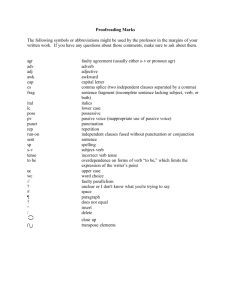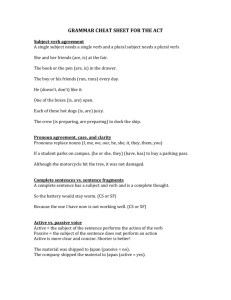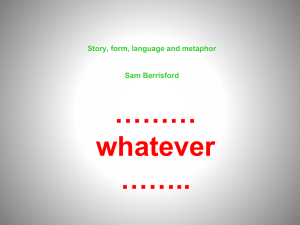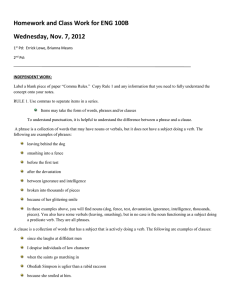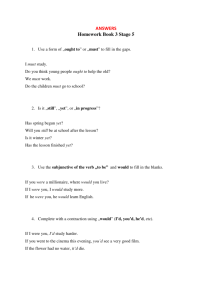Four Editing Targets WRITING CENTER TIPS
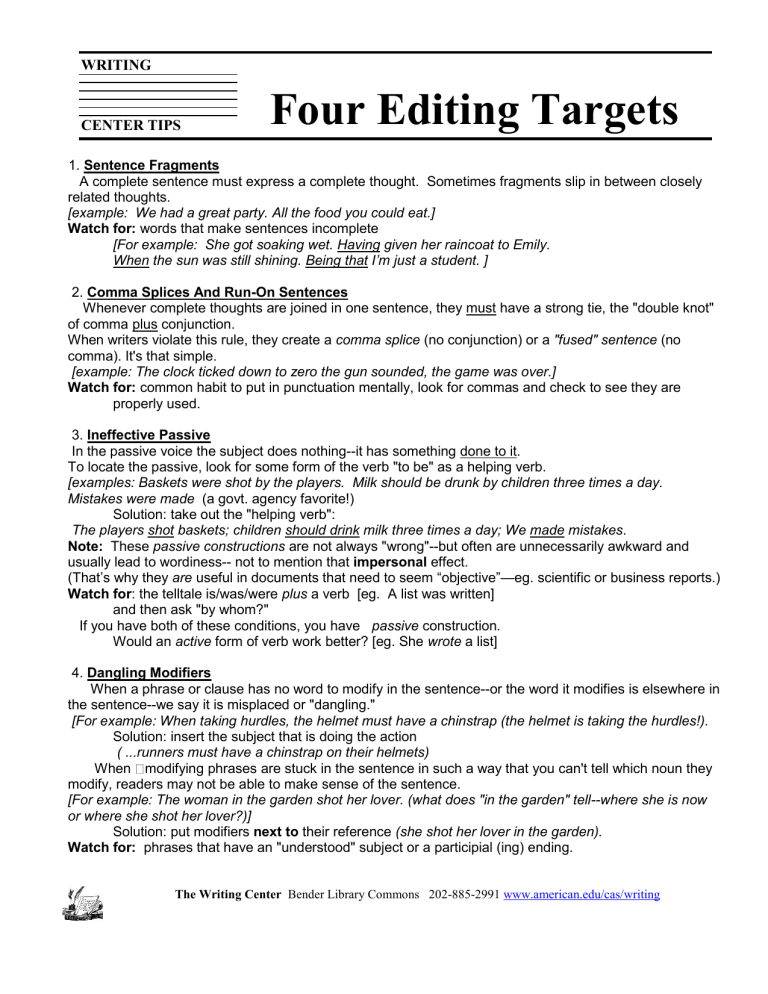
WRITING
CENTER TIPS
Four Editing Targets
1.
Sentence Fragments
A complete sentence must express a complete thought. Sometimes fragments slip in between closely related thoughts.
[example: We had a great party. All the food you could eat.]
Watch for: words that make sentences incomplete
[For example: She got soaking wet. Having given her raincoat to Emily.
When the sun was still shining. Being that I ’m just a student. ]
2. Comma Splices And Run-On Sentences
Whenever complete thoughts are joined in one sentence, they must have a strong tie, the "double knot" of comma plus conjunction.
When writers violate this rule, they create a comma splice (no conjunction) or a "fused" sentence (no comma). It's that simple.
[example: The clock ticked down to zero the gun sounded, the game was over.]
Watch for: common habit to put in punctuation mentally, look for commas and check to see they are properly used.
3. Ineffective Passive
In the passive voice the subject does nothing--it has something done to it.
To locate the passive, look for some form of the verb "to be" as a helping verb.
[examples: Baskets were shot by the players. Milk should be drunk by children three times a day.
Mistakes were made (a govt. agency favorite!)
Solution: take out the "helping verb":
The players shot baskets; children should drink milk three times a day; We made mistakes .
Note: These passive constructions are not always "wrong"--but often are unnecessarily awkward and usually lead to wordiness-- not to mention that impersonal effect.
(That ’s why they are useful in documents that need to seem “objective”—eg. scientific or business reports.)
Watch for : the telltale is/was/were plus a verb [eg. A list was written] and then ask "by whom?"
If you have both of these conditions, you have passive construction .
Would an active form of verb work better? [eg. She wrote a list]
4.
Dangling Modifiers
When a phrase or clause has no word to modify in the sentence--or the word it modifies is elsewhere in the sentence--we say it is misplaced or "dangling."
[For example: When taking hurdles, the helmet must have a chinstrap (the helmet is taking the hurdles!).
Solution: insert the subject that is doing the action
( ...runners must have a chinstrap on their helmets)
When modifying phrases are stuck in the sentence in such a way that you can't tell which noun they modify, readers may not be able to make sense of the sentence.
[For example: The woman in the garden shot her lover. (what does "in the garden" tell--where she is now or where she shot her lover?)]
Solution: put modifiers next to their reference (she shot her lover in the garden).
Watch for: phrases that have an "understood" subject or a participial (ing) ending.
The Writing Center Bender Library Commons 202-885-2991 www.american.edu/cas/writing
